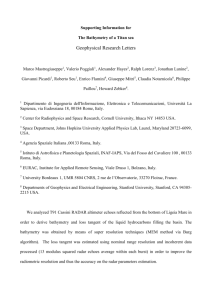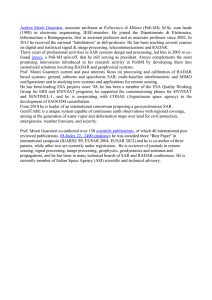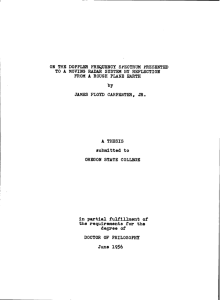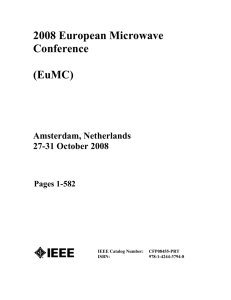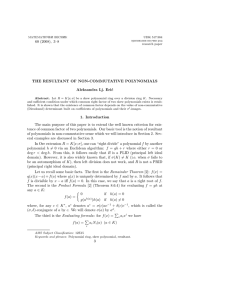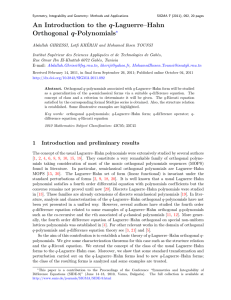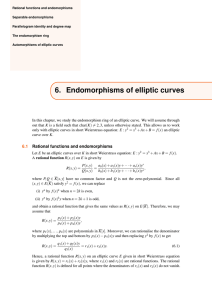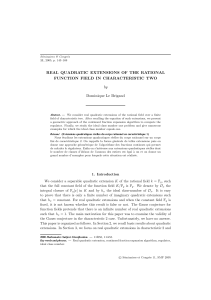radar-eq-notes
advertisement
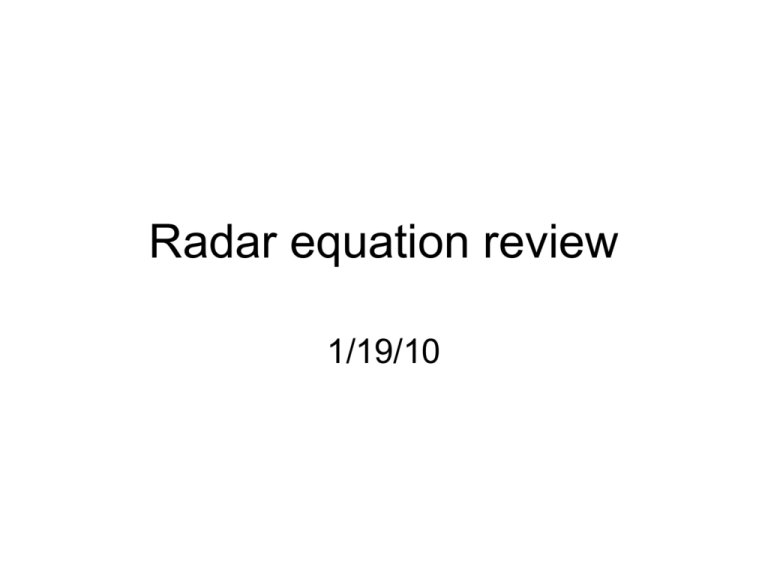
Radar equation review 1/19/10 Radar eq (Rayleigh scatter) 3 PtG 2h K 2 Pr 2 2 16 64 ln 2 r c K2 r 2 vol 6 Di Z The only variable is h, the pulse length Most radars have a range of h values. Rewrite the radar eq as: Z c 3 Pr r Convert to log form: Z C3 Pr 20log10 (r) 2 Radar equation, Mie scatter 1 1 2 2 Pr 2 PtG h 2 16 64 ln 2 r c' r2 vol i Uses of the radar equation • Convert Pr to Z • Used for specifications, such as minimum detectable signal (minimum detectable reflectivity at some standard range) • The general form of the radar equation also applies to sodars and lidars Important radar parameters • • • • • • • • • • • Wavelength (cm vs mm) Peak transmit power Pulse vs. continuous wave (CW) Pulse length Pulse repetition frequency Beam width Minimum detectable signal Duty cycle: PW/PRT or Pavg/Ppeak Receiver bandwidth Antenna size (gain) Scan rate Lidar equation • But, additional terms representing absorption and extinction are important. Table 2. Specifications for a W-band FMCW radar. Frequency 95 GHz Antenna type zenith pointing, transmit and receive antennas Power 1 W CW PRF 1-10 kHz Range Resolution 5-100 m Polarization (receiving antenna) orthogonal Phase stabili ty (see comment 2 above for X-Ka band spec) Minimum detectable Z at 5 km -40 dBZ (1.6 s integration time; 30 m range resolution) Antenna dish diameter 24Σ Beam width 0.25 degrees First side lobe (one way) -17 dB Cross-polar isolation -25 dB spec -30 dB goal Beam width estimate 1.27 1 D For D = 8 ft (2.44 m): if = 3.2 cm, then = 1.27(0.032)/2.44 * 57.3 = 0.95 deg if = 8.6 mm, then = 1.27(0.0086)/2.44 * 57.3 = 0.26 deg m): For D = 2 ft (0.61 if = 3.2 mm, then = 1.27(.0032)/0.61 * 57.3 = 0.38 deg 3.2 cm 9.4 GHz 8.6 mm 35 GHz 3.2 mm 94 GHz These are estimates; need to conduct test on antenna range to get actual value Radial profile of Zmin for WSR-88D Range (km) 0.0 -5.0 0 10 20 30 40 50 60 70 80 90 100 -10.0 -15.0 -20.0 -25.0 -30.0 -35.0 r = 2 km -40.0 -45.0 At 50 km: Z = 58.4 dB + (-107 dBm) +20 log10(50) = -20.6 dBZ. At 10 km: Z = 58.4 +(-107) + 20log10(10) = -28.6 dBZ. end
